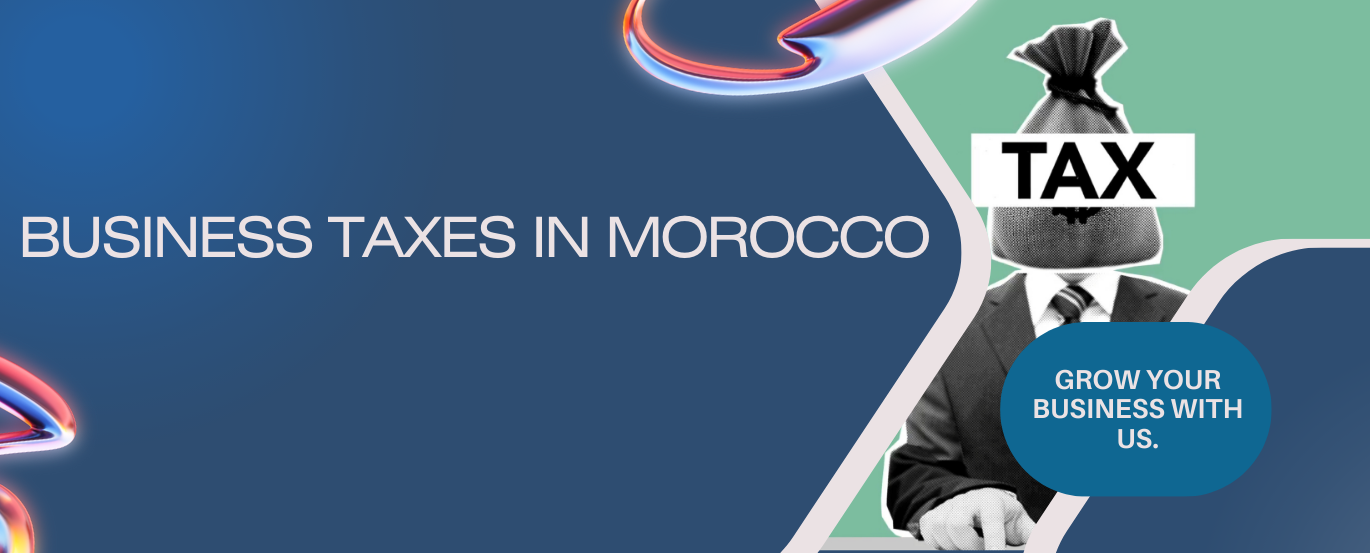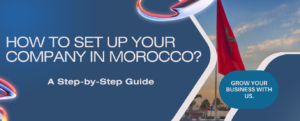Explore the comprehensive guide to business taxes in Morocco. Learn about corporate tax rates, VAT, dividend taxation, income tax at source, social security contributions, and key accounting obligations to ensure compliance and maximize tax benefits.
Table of Contents
Introduction to Morocco’s Tax System
Navigating business taxes in Morocco can feel overwhelming at first, but understanding the basics is key to staying compliant and optimizing your company’s financial performance. Morocco has developed a tax system designed to attract foreign investment while ensuring businesses contribute to the country’s economic growth. Here’s a quick overview to get you started.
Overview of Corporate Taxes and Business Obligations
The primary tax that businesses need to be aware of in Morocco is the Corporate Tax (IS). This tax is calculated based on your company’s net taxable profit, and it’s applied after offsetting any carried-forward losses. The rate varies depending on your company’s earnings:
- For profits under 100 million dirhams, the tax rate is 20%.
- For profits above 100 million dirhams, the rate jumps to 35%.
Certain industries and business structures, like companies with Casablanca Finance City status or those operating in industrial acceleration zones, benefit from a reduced 20% tax rate, regardless of profit size.
Apart from corporate tax, businesses also need to stay on top of other taxes, such as Value Added Tax (VAT), local taxes, and social security contributions for employees.
Key Tax Reforms and Their Impact on Businesses
Morocco has undergone several tax reforms in recent years, particularly with the 2020 Finance Law, which adjusted corporate tax rates and restructured fiscal incentives to align with international standards. For instance, the corporate tax rate for companies in Free Zones was standardized at 15% after a five-year exemption period, signaling Morocco’s efforts to maintain fiscal transparency while still attracting investors.
Additionally, reforms have made it easier for new businesses to enter the market by simplifying administrative processes, ensuring that Morocco remains an attractive destination for international companies looking to expand their operations.
Let Afrigate Partners help you navigate every aspect of setting up your company in Morocco. We streamline the process, saving you time and money, while ensuring everything runs smoothly from start to finish.
Corporate Business Taxes in Morocco
Understanding how corporate tax is calculated is crucial for every business operating in Morocco. Corporate tax, known as Impôt sur les Sociétés (IS), is levied on a company’s net taxable profit after deducting any carry-forward losses from previous years.
- How corporate tax is calculated: Your business’s net taxable profit is the starting point. This is the income your company has earned, minus any eligible expenses and deductions.
- Tax rates based on profit thresholds: Corporate tax rates in Morocco are progressive, with businesses taxed at:
- 20% for profits under 100 million dirhams.
- 35% for profits above 100 million dirhams.
- Special cases for reduced corporate tax rates: Not all businesses are subject to the 35% tax. For example:
- Casablanca Finance City (CFC) companies enjoy a reduced rate of 20%.
- Businesses in industrial acceleration zones also benefit from a 20% rate.
- Companies that commit to investing at least 1.5 billion dirhams over five years, after January 1, 2023, are taxed at 20%, even if their profits exceed 100 million dirhams.

Who Pays Income Tax in Morocco?
Whether you’re a resident or non-resident, income earned in Morocco is subject to income tax.
- Residents and non-residents tax obligations: Residents pay taxes on their global income, while non-residents are taxed on income earned within Morocco.
- Special cases under international agreements: Income tax rules may vary under certain tax treaties. These agreements can prevent double taxation and provide reduced rates on specific types of income for residents of partner countries.
Dividend Business Taxes in Morocco
Dividends paid to shareholders are taxed at the source.
- Overview of dividend taxation: The typical rate on dividends is 10%, but this can be reduced under specific tax treaties.
- Tax rates and reduced rates under tax treaties: For example, countries like Germany, Switzerland, and the UAE benefit from reduced rates of 5% to 7% if specific ownership conditions are met.
VAT in Morocco
Value Added Tax (VAT) is another significant part of business taxes in Morocco.
- VAT filing requirements based on turnover:
- Businesses with an annual taxable turnover of less than 1 million dirhams file VAT quarterly.
- Those with more than 1 million dirhams file monthly.
- VAT rates and exemptions: Morocco’s VAT rate is 20% for most goods and services, but there are reduced rates of 10% and 0% for certain categories like basic food items, education, and healthcare.
Income Tax at Source
Income business taxes in Morocco is progressive, with varying rates based on income levels.
- Income tax brackets and deductions: The tax rates range from 0% for income below 30,000 MAD to 38% for income above 180,000 MAD.
- How income tax is applied: Deductions, such as family allowances, can lower the taxable income, reducing the tax burden.
Social Solidarity Contribution for Companies
Morocco also imposes a social solidarity contribution on companies with high net profits.
- Breakdown of rates based on net profit:
- 1.5% for companies earning between 1 million and 5 million dirhams.
- Up to 5% for companies with profits exceeding 40 million dirhams.
- How the solidarity contribution is calculated: This contribution is an additional charge based on the company’s net taxable profit and applies annually.
Local Taxes in Morocco
In addition to national taxes, businesses face local taxes.
- Types of local taxes: These include the local authority tax, professional tax, and the municipal services tax.
- Exemptions and rates: New businesses often benefit from exemptions like the professional tax, which is waived for the first five years of operation.
Accounting Obligations for Businesses in Morocco
Proper accounting is essential to ensure compliance with business taxes in Morocco.
- Importance of maintaining regular accounts: Businesses are required to keep accurate financial records, including revenue, expenses, and VAT transactions.
- Key accounting requirements: VAT-registered businesses must issue proper invoices and keep separate accounts for activities with different VAT treatments.
Let Afrigate Partners help you navigate every aspect of setting up your company in Morocco. We streamline the process, saving you time and money, while ensuring everything runs smoothly from start to finish.
Social Security Contributions in Morocco
Companies in Morocco must contribute to social security for their employees.
- Breakdown of social security contributions for employers and employees: Employers typically contribute around 20% of an employee’s salary towards family benefits, health insurance, and long-term social benefits.
- Categories of contributions and their rates: Contributions cover family benefits (6.4%), health insurance (6.37%), and long-term social benefits (11.89%).
Tax Treaties and International Tax Agreements
Tax treaties play a crucial role in simplifying tax obligations for international businesses operating in Morocco.
Reduced rates on dividends and other forms of income: Many tax treaties reduce dividend taxes to as low as 5%, depending on the level of ownership in the distributing company.
How tax treaties benefit businesses: These agreements often prevent double taxation and provide reduced rates on dividends, interest, and royalties between Morocco and partner countries.
Mastering Business Taxes in Morocco for Strategic Growth
Navigating business taxes in Morocco may seem complex, but understanding the fundamentals is key to staying compliant and benefiting from available tax advantages. From corporate tax rates to VAT and social security contributions, Morocco’s tax system is designed to encourage both local and foreign investments. By aligning your business strategy with tax treaties and maintaining proper accounting practices, you can reduce your tax burden and focus on growing your business in this thriving market. With the right approach, Morocco offers fertile ground for businesses to expand while optimizing their tax obligations.
Let Afrigate Partners help you navigate every aspect of setting up your company in Morocco. We streamline the process, saving you time and money, while ensuring everything runs smoothly from start to finish.
Learn more about Tanger Free Zone Here





